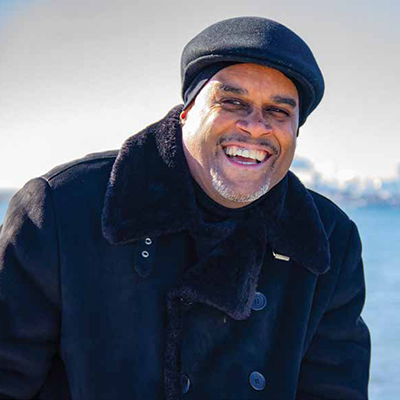Healing Inner Wounds
March 10, 2022
Since the pandemic, more and more members are taking advantage of the free therapy provided by the Union benefit fund to come to terms with mental stress.

Working in the ICU, Rodriguez was accustomed to losing patients. “Before the pandemic, we would usually see a couple of deaths a week.
With COVID-19, we were seeing several deaths during each shift.
“I wasn’t sharing my experience with anyone outside of my team. It was so traumatic for me, and I didn’t want to burden anyone else.”
It wasn’t until COVID-19’s second wave in 2021 that Rodriguez realized that she still hadn’t dealt with her feelings. When she found out that the 1199SEIU Benefit Fund offered free, unlimited therapy, she made an appointment. Her grandmother had emigrated from Puerto Rico as a young woman, and Rodriguez was aware of the stigma around seeking therapy in her community. “But starting therapy was the best decision I have made in a long time,” says Rodriguez.
“I was having PTSD-like symptoms. I was waking up in the middle of the night sweating, believing that I’m at work and that I needed to shut off the alarm on the cardiac monitors,” she adds, “I tried to brush it off, but I realized that I could not handle it on my own. Once I had difficulty sleeping, I knew I had to get help.”
Rodriguez saw a therapist for eight months and is now “sleeping like a baby.” She learned to be more compassionate with herself and not try to be a superhero all the time.
Russell Smith, Senior Billing Representative and member at the Montefiore Medical Center in the Bronx for 29 years, was also conscious of the stigma around seeking the “talking cure.” He says: “As men, we can feel a lot of pressure to be the breadwinner and look after our spouse and our children. If we don’t talk about it, the pressure can build up until it affects our physical health,” adding, “We can get stuck with a machismo attitude. It is important to stop that nonsense and get over our egos. If you take care of yourself, it will help you to take care of others.
“It is not enough to talk with family and friends,” he advises. “It is better [to talk about it with] someone on the outside looking in. Your family loves you, but sometimes they are not going to tell you the real deal. You need someone to be brutally honest if you are going to heal and work through things.”
Smith originally sought therapy to deal with a cancer diagnosis and has been attending therapy twice a week for the past two years. Thankfully, his cancer was treatable. “Everyone should seek a therapist,” he says, adding, “Everyone has struggles. Rent, car note, child-care. Life in general is stressful.”

As a home care member in New York City, Berta Motta, is also eligible for free therapy. Working in home care for more than 30 years, she knew exactly what to do when she witnessed an assault on one of her clients by their own family member. She filed a report with the agency and was re-assigned. But the incident left her shaken.
“I was looking after a 21-year-old girl who was developmentally delayed and could not walk by herself. Her mother punched her in the head when she tried to grab a toy from a toddler who was also in the house,” recalls Motta. “The girl didn’t mean anything by it. She was just playing.
When I bathed her later, I saw she had a large red bump on her head.”
The incident happened five years ago, but it remains fresh in her mind.
“After my therapy sessions, I was able to let go of my sense of guilt. I became much calmer,” said Motta.
“We often carry injuries inside ourselves. Sometimes we don’t express them because of the stigma. Therapy liberated me from the difficult feelings and helped me to heal.”
1199 Magazine: January - February 2022

